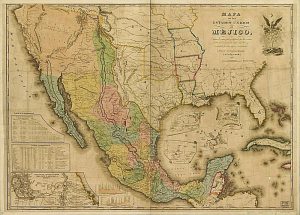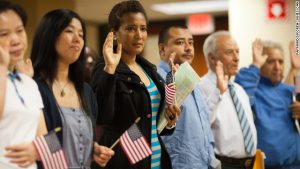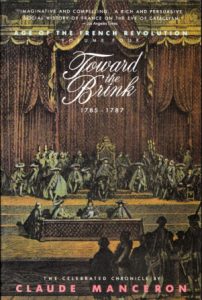 Like smartphones teach us to be dumb – to not know things, to not be able to find our way except by using the device – we are also learning how to forget the past. Or how to remember it inaccurately, disconnected from the forks in the road where our path darkened and we lost something irretrievable, something we did not make nor deserve but that came from us and birthed us, was us, the best and the worst, that pushed us in the right direction because we were scared to go on our own until we learned we could pull ourselves there if we could just join enough hands.
Like smartphones teach us to be dumb – to not know things, to not be able to find our way except by using the device – we are also learning how to forget the past. Or how to remember it inaccurately, disconnected from the forks in the road where our path darkened and we lost something irretrievable, something we did not make nor deserve but that came from us and birthed us, was us, the best and the worst, that pushed us in the right direction because we were scared to go on our own until we learned we could pull ourselves there if we could just join enough hands.
April 4, 1968, the Lorraine Motel, Memphis, TN, the alternately riotous and trippy sixties, the whole twentieth century, came crashing to a sudden end.
Now, 50 years into the 21st we wonder how long it’s going to last. This should not be our mindset; it wasn’t his. Is there an ideal that’s not an ideology? Is there optimism greater than hope?
Can we contemplate the breadth of shared possibility? How much justice will the market allow? The answers are not in your phone.
What does the Treaty of Guadalupe Hidalgo mean?
 For the better part of a century, the southern US border was open, more or less, and people moved back and forth as need or desire dictated. From our friends at Balloon Juice, two maps and a few more words:
For the better part of a century, the southern US border was open, more or less, and people moved back and forth as need or desire dictated. From our friends at Balloon Juice, two maps and a few more words:
You’ll notice that on both the map prepared for the negotiations of the Treaty of Guadalupe Hidalgo and the Rural Health Information’s map of Hispanic or Latino population of the US based on the 2010 Census that the area that the US would get from Mexico in 1848 is still where the largest percentage of the Hispanic or Latino population of the US live. This doesn’t count south Florida, which has a different historic pattern of Hispanic settlement. What the patterns of settlement shown on the maps show us is that the border was moved on the map, but the pattern of settlement remained largely unchanged.
Reckoning with the reality of steady demographics in this vast region despite changing borders or enforcement regimes is a prerequisite to sustainable immigration policy. It will come as a great surprise to many people that we can have a population that loves the land even if they call it something different and/or the name changes from time to time. I know: shocking.
Green My Card
 Nobody goes there anymore – it’s too crowded:
Nobody goes there anymore – it’s too crowded:
In just the first quarter, more than 252,000 U.S. residents applied to become naturalized citizens, a 28 percent increase from the same period a year earlier, according to the U.S. Department of Homeland Security. Besides the 41 percent increase in Florida, gains were registered in swing states: about 6,000 applications in Pennsylvania, 3,000 in Nevada, 4,000 in North Carolina and 3,000 in Colorado. There are 8.8 million permanent residents living in the U.S. eligible for citizenship, of whom 2.7 million are from Mexico, according to government estimates.
8 million, and the election won’t even be that close. This development is an unadulterated good – not just that all these people are becoming naturalized – that’s more of a civic responsibility on their part. But that in-migration is so strong, and especially with people who already take the responsibility side of citizenship seriously enough to not be afraid of the scary rhetoric and are actually moved to become a part of the solution. In sports parlance, we’re having a strong draft this year.
Via Washington Monthly.
Join the One Percent to Live Longer
 I hope this is an admonition:
I hope this is an admonition:
New research in the Journal of the American Medical Association shows top earning Americans gained 2 to 3 years of life expectancy between 2001 and 2014, while those at the bottom gained little or nothing. Plenty of research has already shown that health and wealth are intertwined, and that they generally improve in tandem as you move up the income scale. But this year, the vanishing middle class and wildly divergent incomes among Americans have been central issues in a vitriolic race for the White House. Today’s JAMA research shows in the starkest terms yet how disparities in wealth are mirrored by life expectancy, and how both are getting worse.
We yield the floor to Claude Manceron:
The foundation of all revolutionary thought lies in this idea that now is what matters, and don’t try to tell us about anything else. As one scans the images of that now, the temperature begins to rise. And keeps on rising until it reaches that irrepressible indignation at injustice, the burst blood vessel of Revolution, the wrath of love.
WE WERE ALL IN LOVE
I would be remiss not to post our new record here. To be widely available, hopefully soon.
The Oscars’ Lack of Diversity
 Not exactly a punchy title but… my own reaction to the monochromatic handing out of the little gold guys doesn’t feel so cheeky.
Not exactly a punchy title but… my own reaction to the monochromatic handing out of the little gold guys doesn’t feel so cheeky.
Is it the lack of good movies with stars of color? Decent roles for any other than white actors? The more questions you attempt to formulate, the more perverse this choosy reality seems. I will agree that it is positive that consensus seems to be congealing around the fact that something is wrong with this picture these pictures. But still, why is it that in 2016 only white actors are being recognized for their efforts in mass-marketed motion pictures? Even writing that sounds intentional and stupid.
Are we putting too much on the Academy?
“We absolutely are. This is not really about the Academy. The Academy is a reflection and a symptom of a very deep problem in Hollywood and, I would say, in American popular culture generally. I am fortunate enough to do a lot of my work in Los Angeles. I go to many meetings at studios in L.A. and you see, by and large the decision makers at the top of departments and organizations are almost uniformly white and largely male as well. The demographics are not the only story. The key there is not just the color of people sitting behind important desks, it’s the thought process. It’s what are deemed important stories. It’s what are deemed merely entertaining stories. I think when ‘Straight Outta Compton’ was green-lit and produced, people saw it only as an entertaining movie, not as an important movie because it was only about a hip-hop group. As opposed to seeing it as telling a story about a defining chapter in recent American history, which it actually does. It’s not just about hip-hop, which is important in and of itself, but it’s about the Rodney King riots, racial conflict and police brutality and all of these things make it important. Same with ‘Creed’.”
SMH, as the kids say (walking out of the theatre).
Arguments That Needed To Be Lost
 It’s been a strange week, in a very good way.
It’s been a strange week, in a very good way.
Another interview I’m working on reminded me of a point to share: when parking lots are made into parks or public spaces, parking companies lose X number of spaces. If there spaces aren’t there, people are usually just okay with it. But the imposition itself is often the hard part. But that is an argument the parking advocates need to lose.
The same can be said for arguments in favor of flying the Confederate flag, against the availability of affordable healthcare and against the right to love how and whom you wish. These arguments exist, and they all deserve to be lost. Beaten, actually, by better, more decent, more just arguments.
Thankfully, this week, they have. And this isn’t triumphalism, though it might feel really good.
What does Red Mean?
We have no excuse for this whatsoever.
Righteous Anger
Pete Seeger (1919-2014) proved that there is such a thing and much can be accomplished by it.
I’ve been fortunate to get to know one of Seeger’s many folk offsprings (folksprings?) and glimpse into that dwindling window of that time when idealism seized the form (for a while) of speaking to hearts and minds through lyrics. From The Weavers to the Occupy Movement, Seeger spent his life at the forefront of the most patriotic American tradition: rabble-rousing resistance.
Rouse yourself.
Origins of the Distrust
It can be argued that the seeds of the distrust we have for government, and especially government commissions, were purchased on this day, 50 years ago. There were watered by the Warren Commission as it tried to not explain just what had happened to a popular, sitting U.S. President in broad daylight. And by the time we arrived at Watergate and the Church Commission, those lusty seeds were in full bloom. Pierce:
One argument with which I have no patience is that the distrust of the Warren Commission, a distrust that has remained remarkably consistent for five decades, is based in our disbelief that a great leader could be gunned down by an ordinary schmoe with a cheap rifle. This. we are told, is too much for our delicate sensibilities to handle. This is arrant, infantilizing nonsense. At the time of his death, John Kennedy had a national security establishment that was a writhing ball of snakes. (Not for nothing did he insist that his White House cooperate with the filming of Seven Days In May.) There were the ongoing plots against Castro in which his brother was intimately involved. There is a contemporary memo for something called Operation Northwoods that called for what we would now call “false flag” operations within the United States, including blowing up John Glenn on the launching pad in Florida, that could be blamed on Cuba and used as a pretext to invade. You can see a copy of it in the John F. Kennedy Library. Since then, we have seen Vietnam, Watergate, Iran-Contra. Richard Nixon sabotaged the Paris Peace Talks to help him get elected, and Ronald Reagan’s people may have done the same thing with the release of the hostages in Iran. Don’t tell this generation that we don’t believe the Warren Commission out of some mushy, mythical notion of proportionality. There is no proportionality to the deceptions involved in official murder. We’ve read enough Graham Greene to know that. We watched enough happen on the television. We can see a church by daylight.
An author friend wrote a book about the Kennedy assassination, and just a few of our conversations convinced me that it was a conspiracy without end – one for which it is even difficult to find the beginning. And it still hangs there, as we do, bound by its purposeful mysteries, unable to move forward in many ways because of them. We are a resilient country with a odd penchant for renewable Original Sin.

